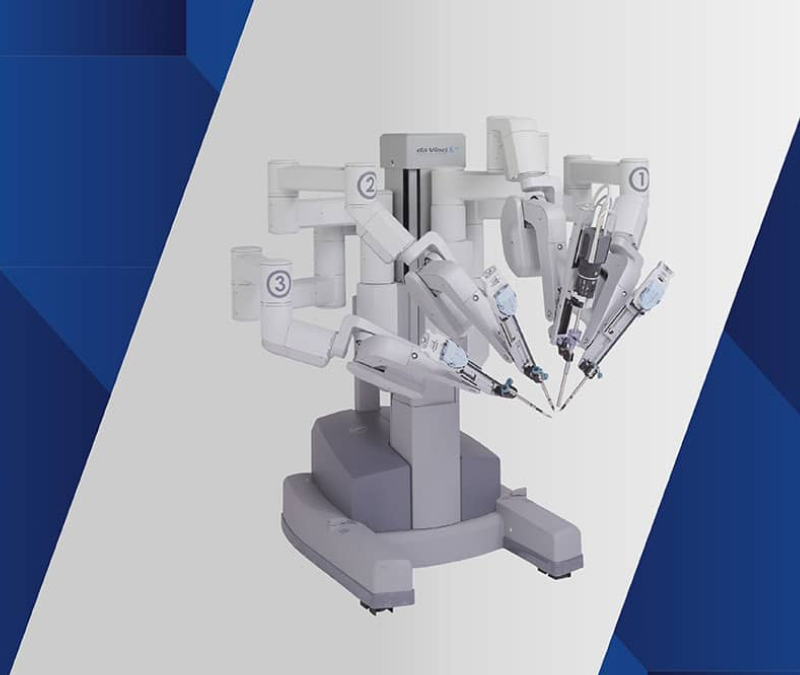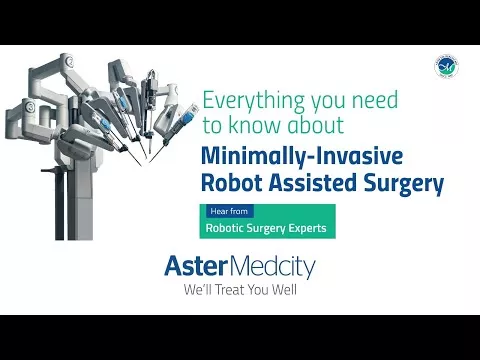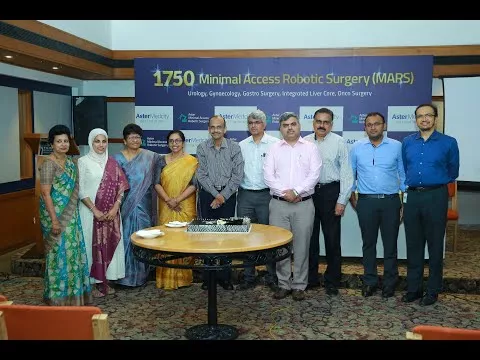Aster Centre for Robotic Gastrointestinal Surgery operating under Aster Centre of Excellence in Gastrosciences offers specialized expertise, advanced robotic technology, and a multidisciplinary approach to provide minimally invasive surgical options for gastrointestinal conditions. It focuses on precision, patient-centered care, collaboration, research, and continuous improvement to deliver optimal outcomes and improve the quality of life for patients. The centre is equipped with state-of-the-art robotic systems, such as the da Vinci Surgical System, which are specifically designed for gastrointestinal surgeries.
Our Robotic Surgeons have expertise in performing a wide range of surgical procedures using robotic-assisted technology, including but not limited to:
- Robotic-assisted colorectal surgery: Surgical procedures for conditions such as colorectal cancer, diverticulitis, inflammatory bowel disease, or polyps.
- Robotic-assisted gastric surgery: Surgical procedures for gastric conditions such as gastric cancer, gastric ulcers, or gastric motility disorders.
- Robotic-assisted esophageal surgery: Surgical procedures for conditions such as esophageal cancer, gastroesophageal reflux disease (GERD), or achalasia.
- Robotic-assisted liver and pancreatic surgery: Surgical procedures for liver tumors, pancreatic tumors, or chronic pancreatitis.
- Robotic-assisted bariatric surgery: Weight loss procedures such as gastric bypass or sleeve gastrectomy for patients with obesity.
- Robotic-assisted hernia repair: Surgical repair of different types of hernias, including inguinal, umbilical, or incisional hernias.
The Robotic Gastrointestinal Surgery Centre follows a multidisciplinary approach to patient care. It collaborates closely with other specialists such as gastroenterologists, radiologists, pathologists, nutritionists, and oncologists to ensure comprehensive evaluation, accurate diagnosis, and personalized treatment plans.
Blogs
The source of trustworthy health and medical information. Through this section, we provide research-based health information, and all that is happening in Aster Hospital.







